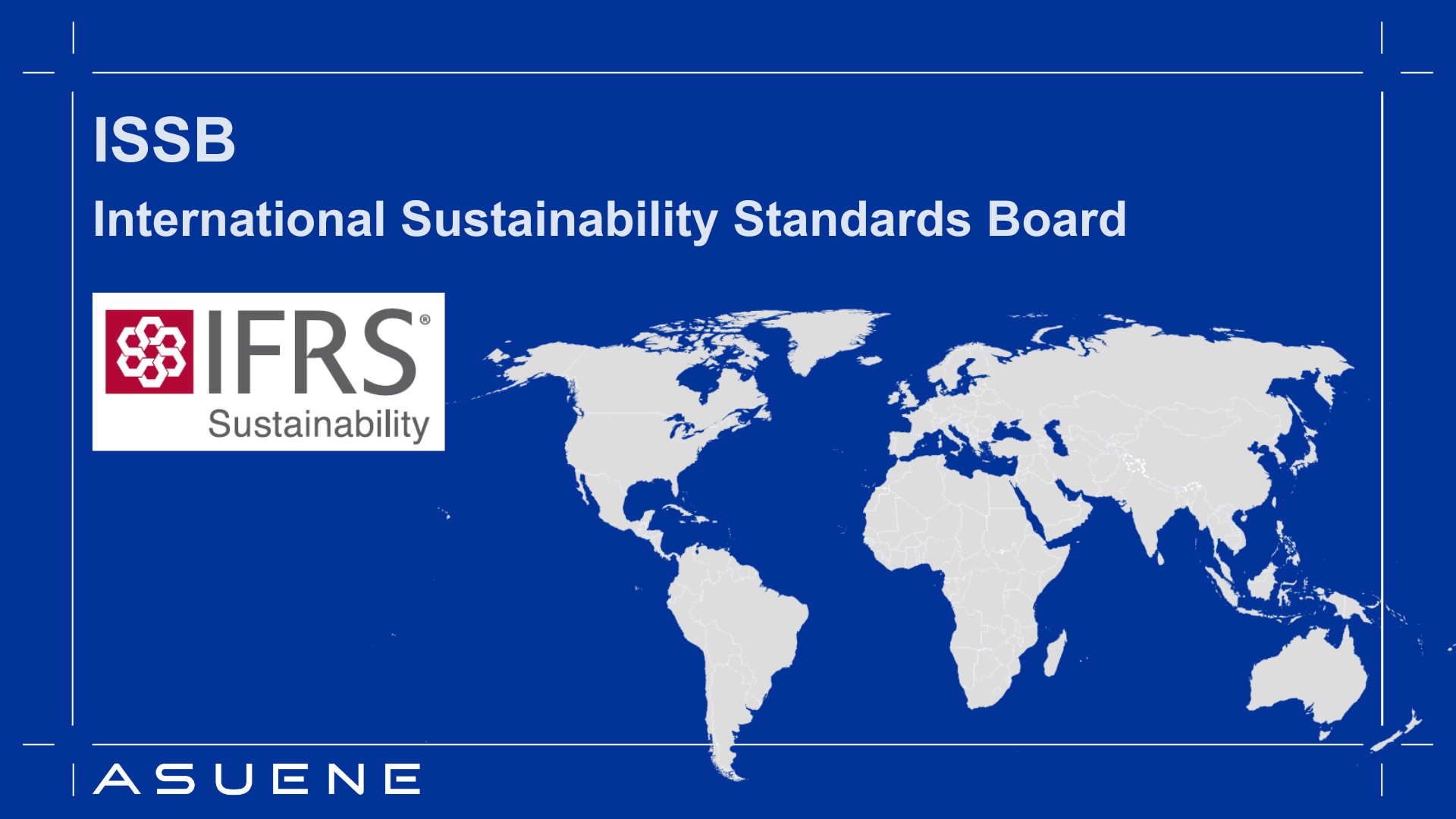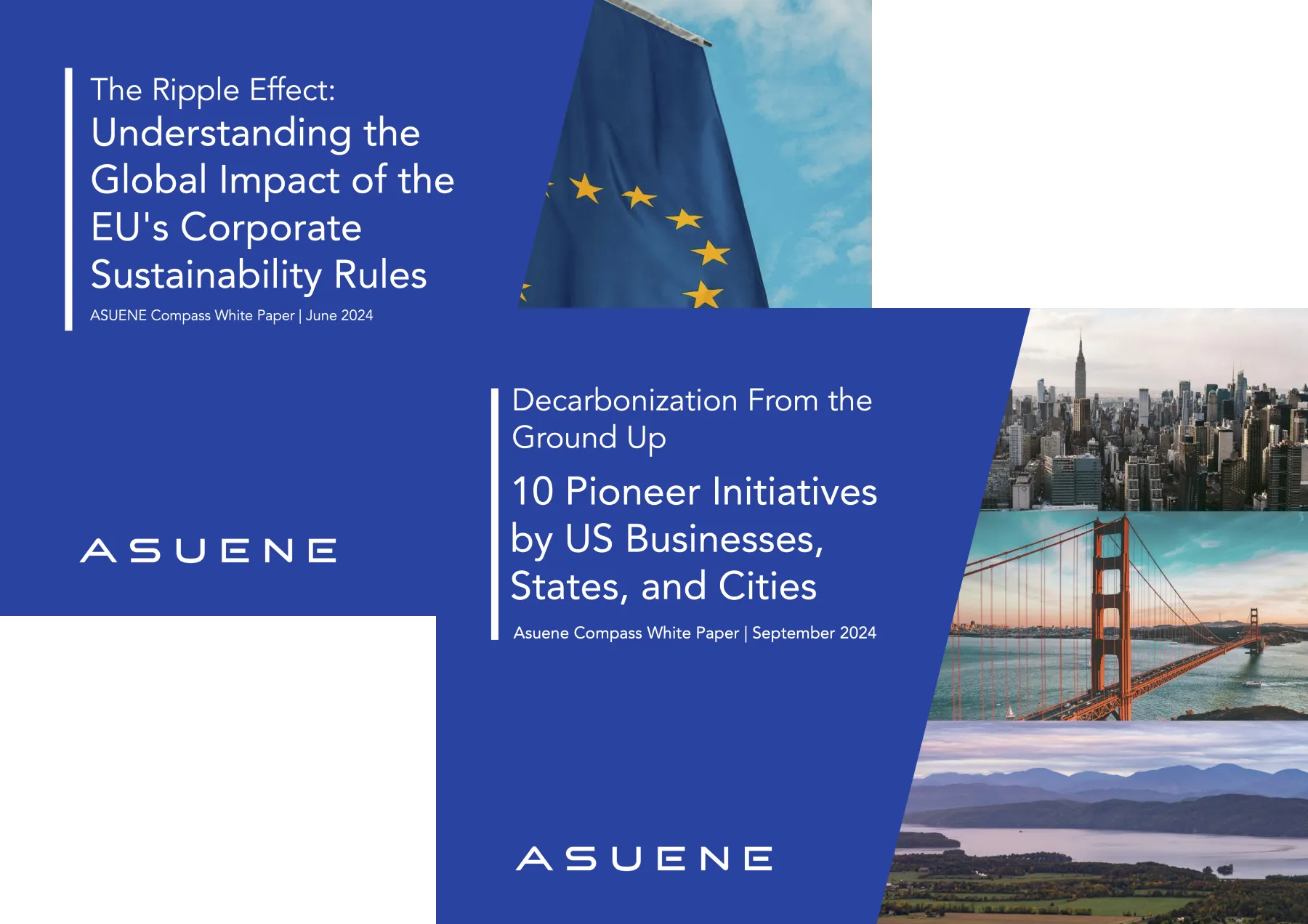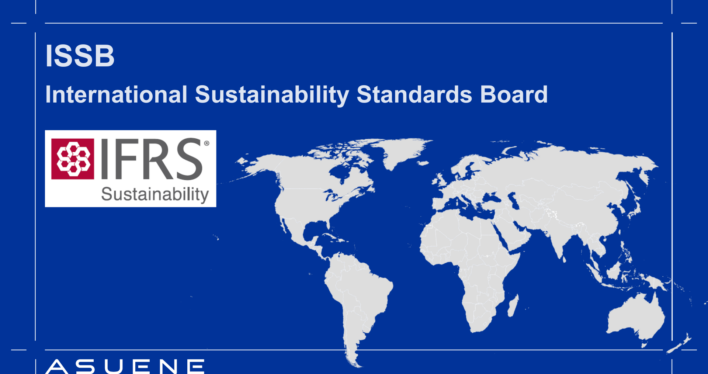- Article Summary
-

______________________________________________________________
Sustainability reporting has become a critical component for businesses aligning with global climate goals and promoting transparency. The increasing demand for standardized sustainability disclosures led to the establishment of the International Sustainability Standards Board (ISSB) by the IFRS Foundation during COP26 in Glasgow in November 2021. The ISSB’s mission is to develop a global baseline for sustainability-related disclosures to enhance transparency, consistency, and comparability across industries and markets.
The ISSB aims to:
- Draw up global benchmarks for sustainable development information disclosure
- Meet investors’ information needs
- Enable clear communication between companies and financial markets
- Promote interoperability between different sustainability reporting standards1
Key Objectives of the IFRS Sustainability Standards
The ISSB standards are designed to:
- Establish global benchmarks for sustainability disclosures.
- Meet investor and stakeholder information needs.
- Enable clear communication between companies and financial markets.
- Promote interoperability between different sustainability reporting standards.
By offering standardized reporting guidelines, these standards ensure that investors and stakeholders receive decision-useful data that integrates financial and sustainability-related risks and opportunities.
Key ISSB Requirements
The ISSB’s framework is built around two core standards:
IFRS S1 – General Requirements for Sustainability-related Disclosures
IFRS S1 establishes a comprehensive structure for companies to report sustainability-related financial information.
Key requirements:
- Governance (decision-making processes and accountability structure)
- Strategy (impact of sustainability on business)
- Risk management (risk identification, assessment, and response measure
- Indicators and targets (KPIs, progress reports)
IFRS S2 – Climate-related Disclosures
IFRS S2 focuses specifically on climate-related risks and opportunities.
Key requirements:
- GHG Emissions (Scopes 1, 2, and 3) – Companies must report carbon emissions across their value chain.
- Climate-related risks & opportunities – Assessing physical and transition risks.
- Climate scenario analysis – Evaluating business resilience under different climate scenarios.
- Climate goals & strategies – Disclosing emissions reduction targets and progress.
These requirements align closely with the Task Force on Climate-related Financial Disclosures (TCFD) framework.
Introducing IFRS S1 and IFRS S2
| IFRD Standard | Objective | Key Focus Areas | Disclosure Requirements | Key Meritcs |
| IFRS S1: General Sustainability | Require companies to disclose sustainability-related risks and opportunities that may impact financial performance. | Governance, Strategy, Risk Management, Metrics & Targets, Materiality, Integrated Financial Reporting. | Board oversight and governance structures, Business impact of sustainability risks, Risk identification & monitoring, Progress towards | Sustainability risks & opportunities, Governance structure, Resource use, Financial impact |
| IFRS S2: Climate-Related | Provide a detailed framework for disclosing climate-related risks and their financial implications. | GHG Emissions (Scope 1, 2, 3), Climate Risks, Resilience & Scenario Analysis, Transition Plans, Internal Carbon Pricing. | Climate-related governance, Business resilience against climate risks, Scenario analysis, GHG emissions reporting, Climate strategy and transition planning. | GHG emissions (Scope 1, 2, 3), Internal carbon pricing, Transition risk exposure, Energy efficiency & resource utilization. |
IFRS S1: General Sustainability Disclosure Requirements
IFRS S1 establishes a framework for consistent and comprehensive sustainability-related financial disclosures.
Key Requirements:
- Governance: Report on governance structures managing sustainability risks and opportunities.
- Strategy: Disclose sustainability risks’ impact on business model and decision-making.
- Risk Management: Outline risk identification, assessment, and monitoring processes.
- Metrics & Targets: Provide performance indicators and progress toward sustainability goals.
- Fair Presentation: Ensure disclosures are complete, neutral, and relevant to investors.
- Connected Reporting: Align sustainability disclosures with financial statements.
IFRS S2: Climate-Related Disclosures
IFRS S2 outlines requirements for reporting climate-related risks and opportunities, aligned with TCFDrecommendations.
Key Requirements:
- Governance: Disclose board and management roles in climate risk oversight.
- Strategy: Report on climate risks’ financial impact, resilience planning, and transition strategies.
- Risk Management: Outline processes for identifying, assessing, and integrating climate risks.
- Metrics & Targets: Disclose GHG emissions (Scope 1, 2, 3), internal carbon pricing, and risk metrics.
- Scenario Analysis: Assess and disclose climate resilience under various scenarios.
Global Impact
The ISSB standards have already been adopted by several countries, including the UK, Brazil, Costa Rica, Sri Lanka, Nigeria, and Turkey. Other countries like Canada, Japan, and Singapore are currently in consultation.
Significance
The ISSB represents a crucial step towards harmonizing global sustainability reporting, enabling companies to demonstrate transparency and take concrete climate action. These standards have the potential to transform financial markets and the global economy by providing a consistent framework for assessing corporate sustainability performance.

How Asuene Inc Supports IFRS Sustainability Standards
Asuene Inc provides innovative solutions for sustainability management and carbon accounting, helping businesses comply with IFRS S1 and S2.
- Carbon Accounting Made Easy: Automates Scope 1, 2, and 3 emissions tracking for accurate climate disclosures.
- Simplified Reporting: Generates IFRS-compliant sustainability reports, reducing administrative workload.
- Scenario Analysis: Assesses climate risks and financial impacts with advanced modeling tools.
- Custom Dashboards: Tracks sustainability goals with clear metrics and visualizations.
- Expert Guidance: Offers tailored support for seamless IFRS adoption and compliance.
The IFRS’s global standards mark a transformative shift in corporate sustainability reporting. With IFRS S1 and IFRS S2 paving the way for standardized, investor-focused disclosures, businesses have an unprecedented opportunity to demonstrate their commitment to sustainable practices. By leveraging innovative tools and expertise from companies like Asuene Inc, organizations can ensure they remain at the forefront of sustainability and transparency, building trust with investors and stakeholders alike.
